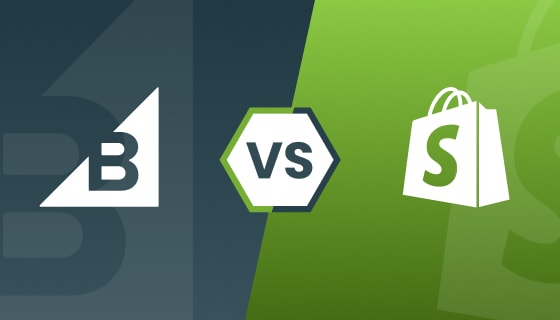Introduction
More and more new businesses are joining the online shopping trend, and they are proliferating. A well-organized online store is the key to success for any online brand. Without a good online store, surviving long in the business is hard. This not only affects the number of customers you have but also your reputation in the market.
So, it’s important to have a good online store for your brand, whether you’re just starting or have been in business for a while. Even though the online shopping trend is growing, there are challenges in creating a good online store for brands. To overcome these challenges, it’s important to think about different things to make sure your website is good and helps your business grow.
If you’re unsure what to consider, we’ve listed important factors to consider when creating an online store for your brand.
Things To Consider Before Starting Online e-Commerce Store
Establishing a sustainable e-Commerce business demands a comprehensive understanding of various crucial factors. The mere selection of the optimal e-Commerce platform is insufficient for achieving success in the competitive online marketplace. To thrive, it is imperative to possess a profound awareness of your competitors and a thorough understanding of the dynamic market trends. The ability to adapt and innovate based on this knowledge is paramount for long-term success in the e-Commerce industry. Continuously staying informed about market changes, consumer preferences, and emerging technologies is key to maintaining a competitive edge and building a resilient e-Commerce venture.
Choosing The Right Platform
Choosing the correct e-Commerce platform holds significant importance for the success of your business. Various platforms provide distinct features and capabilities, such as Shopify, Magento, WooCommerce, and Webflow e- Commerce. To make a well-informed decision, it’s essential to assess your business requirements and budget thoroughly. This decision not only impacts your current operations but also lays the foundation for future growth and adaptability to evolving market trends. Take the time to research each platform’s strengths and weaknesses, considering factors such as scalability, customization options, and integration capabilities. This careful evaluation ensures that the selected e-Commerce platform aligns seamlessly with your business goals, providing a robust foundation for online success.

Must-Have Features
User-Friendly Navigation
This means making things clickable, like pictures, so users don’t have to aim for text. Also, having a search bar that predicts what you’re typing can be helpful. The main goal of a user-friendly design is to help people find what they want with as few steps as possible.
Clarity In Images And Product Descriptions
Show products from different angles and have video reviews to help shoppers decide. But be careful, if your page takes a long time to load, fewer people might visit.
Customer Reviews
Let customers share their experiences, whether good or bad. This helps others decide what to buy and makes your website more trustworthy.
Mobile Responsive
Many people use the internet on their phones. Almost 2/3 of the world’s population uses mobile devices. So, it’s important to ensure your website looks good and works well on phones. Almost 80% of smartphone users have bought something online in the last six months. So, it’s necessary to design your website to fit on mobile screens.
Optimizing Before And During eCommerce Website Development
If a webpage takes more than five seconds to load, there’s a 90% likelihood that visitors will exit. Therefore, enhancing your site’s loading speed is crucial to maintain people’s interest.
SEO, or Search Engine Optimization, elevates your website’s position in search results. Various strategies contribute to this, such as incorporating specific keywords into your website’s content. Additionally, it’s important to use keywords in titles, descriptions, and image information. Remember, ‘alt’ descriptions on images can make your website discoverable through image searches.

It’s often overlooked that involving an SEO specialist early in developing an e-Commerce website is beneficial. The specialist can assist in tasks like adding essential tags, organizing page layout, creating a content strategy, ensuring a mobile-friendly design, improving loading speed, and addressing other crucial aspects. This comprehensive approach enhances the overall performance of your website.
Website Search And Filtering Functionality
People often use the search bar on websites, even those that don’t sell anything. If your website does sell products, it’s crucial to provide advanced search functionality. An example is a visual search feature, allowing users to upload photos of an item they like. The search engine will then try to find a product similar to or exactly the same as the one in the photo. While browsing categories is useful for users seeking inspiration, a simple search can quickly lead them to the product they need in just a few clicks.
It’s important to consider that some users might not remember the exact name of a product. To cater to this, tagging your products with keywords or synonyms can enhance the search experience and help users find what they’re looking for more easily.
Showcasing Proper Products Along With The Description
In addition to simplicity, users highly appreciate quality content on your website. Including high-resolution images, video reviews, and detailed product information significantly influences your conversion rates.
One drawback of online shopping is the inability of customers to see or feel the product or try it on physically. Therefore, the primary information guiding their decision-making process comes from product descriptions. Enhancing these descriptions by including specific details such as individual measurements for clothing, designated use purposes for instruments, and energy consumption information for appliances can play a pivotal role in persuading customers to make a purchase. Providing such comprehensive information helps bridge the gap between the virtual shopping experience and the tangible aspects customers might miss in traditional brick-and-mortar stores.
Secured Payment Gateways
A reliable payment gateway not only facilitates the smooth transfer of funds for your business but also ensures the security of customer data. This secure payment gateway is pivotal in establishing trust with your customers. Ensuring their personal information is protected against theft and misuse fosters strong brand loyalty. Additionally, the heightened security measures make new customers more at ease when making purchases from your business.
Integrating a secure payment gateway, both regionally and internationally, expands your market reach. It allows you to receive orders and payments from customers around the globe. If your team lacks a developer to assist with integrating a secure payment gateway, it is advisable to hire an external expert for this task. This ensures the process is handled with expertise and precision, safeguarding your business and customer data.
Customer Support
After successfully acquiring your customers for their initial purchase, the next step is to secure their ongoing loyalty. Whether you operate in a B2C or B2B capacity, nurturing a positive relationship with your customers is essential for sustained sales and business expansion. Implementing a user-friendly UI for your e-Commerce store, gaining a deeper understanding of customer needs, providing an accessible customer service portal, efficiently addressing customer concerns, and incorporating customer success strategies are key approaches to maintaining a strong and lasting relationship with your customers.
Return Policies
The major challenge in e-Commerce lies in the absence of a physical touch experience with the products. This limitation prevents customers from determining if a product is a perfect fit until it arrives at their doorstep after payment.
To address this issue, reputable e-Commerce vendors always provide return options with the necessary flexibility and precautions. This ensures that honest customers can promptly return unwanted goods and receive either replacements or a refund if a replacement is not feasible.
During the e-Commerce designing and programming process, it is imperative to establish clear return policies and incorporate the necessary modules to facilitate the smooth handling of returns. This proactive approach enhances customer satisfaction and builds trust, essential components for the success of any e-Commerce venture.
Additionally, considering the technical intricacies involved in e-Commerce development, hiring professional e-Commerce web development services becomes crucial to ensure a seamless and effective implementation of return policies and modules within the website. This step can significantly contribute to your e-Commerce business’s overall success and customer satisfaction.
Marketing Strategy
Whether you’re establishing an online presence for an existing physical store or entering the retail business for the first time, crafting a robust marketing strategy alongside your website launch can provide a significant advantage in securing initial orders. Moreover, this strategy is pivotal in shaping the website’s structure and determining essential elements for creating a compelling online presence.
Initiating the development of a marketing strategy early in the process enables you to identify the necessary features for your website. For instance, incorporating social media sharing options or push notifications for both desktop browsers and mobile devices may be crucial. Implementing these elements during the website development phase is more efficient than adding them after the site has already launched. This proactive approach ensures that your website not only attracts attention but also incorporates the key functionalities needed to engage and retain your audience effectively.
Integration With Digital Marketing Services
Many e-Commerce brands heavily depend on paid services like Facebook Ads and Google Ads to attract potential customers to their online stores.
While organic content marketing efforts such as SEO or blogs require time to yield noticeable benefits, advertisements provide a quicker way to reach your audiences and generate sales. Ensuring your e-Commerce store is linked with an ad tool is crucial for gathering on-site customer data and enabling better-targeted ad delivery and learning.
However, digital advertising can be expensive, and inexperienced e-Commerce owners may waste money without seeing any significant benefits if they lack the skills to run effective ad campaigns.
For beginners, achieving substantial sales with low ad costs is challenging. Hence, many e-Commerce brands initially focus on experimenting with ad platforms to understand their market and consumers better rather than solely aiming for conversions. Once they gain insights into what works and what doesn’t, they can run more effective and conversion-oriented campaigns. Considering the complexities of digital advertising, hiring professional digital marketing services can be a wise investment for e-Commerce businesses looking to optimize their advertising strategies and drive successful campaigns.
Conclusion
In the dynamic realm of e-Commerce, customer satisfaction is the key to profit maximization. Long-term customer retention, accompanied by positive testimonials, plays a pivotal role in your e-Commerce success. To help you on your journey, we’ve addressed common questions and provided valuable insights in this comprehensive guide. From conveying your brand’s value and choosing the right FAQs to efficient delivery management and safeguarding your business, these strategies can lead you to online e-Commerce store success.












